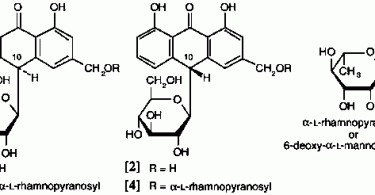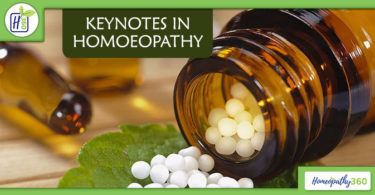The Kali group is one of my favourite groups to teach and write about, hence first of all I will mention the most identifying features of Kali’s from my thirty two years of practice and later I will discuss Kali bich. and Kali carb. All the symptoms and observations mentioned below have been confirmed in my practice.
Constitution
- Dark complexion
- Dirty and unwashed look
- Tired and worn out
Emotional
- Annoyed or irritability at trifles
- Anxiety that affects organs and tissues
- Closed
- Compulsive
- Conservative
- Despondent
- Duty minded
- Groundless anxieties like carbons
- Pessimist
- Pragmatic; down to earth
- Proper
- Rigid
- Rule abiding
- Self-centered nature where maximum attachment is towards oneself
- Strong sentimental attachment to fulfill the emotional insecurity
- Strongly follows traditional values
- Moralistic
Physical
- Chilly patients; generally sensitive to cold and dry weather
- Easy spraining of joints
- Expectoration is raised with difficulty
- General aggravation in early morning
- Low immune states
- Never well since that flu, infections especially parasitic and injuries
- Recurrent enlargement of glands
- Signs of poor eliminations or assimilations
- Skin lacks tone
- Swelling of eyelids
- Tends to catch cold easily
- Tendency to develop asthma, heart disease or rheumatism
- Tendency to produce sinus trouble is a legendary phenomenon
- Tends to become obese
- Uric acid diathesis (Caust., Kali-bich.)
- Aversion to eggs
Kali Bichromicum
Compare the Materia medica of chromic acid.
Mind
- Conscientious and develops guilty feelings easily (Refer to the rubric – Delusions, crime, committed a crime; he had)
- Easily vexed; vexation in any form leads to anginal pains, migraine, rheumatism and gastric ulcers (Refer to the rubric – Indifference, apathy after the least vexation, with distress or pain in stomach; Sadness after vexation)
- Family oriented person, prefers to spend most of the time at home
- Is late for everything because of compulsions
- Covers his mouth with his hands when talking (Refer to the rubric – Gestures, makes – hands; involuntary motions of the – covering – mouth with hands)
- Endogenous depression due to out of proportion anxiety from minor disputes or vexations
- Depression which is characterized by:
- Anxiety, waking on
- Business, aversion to
- Business, incapacity for
- Indifference to external things
- Laziness
- Loathing for life
- Temporarily better after meals
- Man of details; wants details from others and explains everything in great details to others
- Reserved and quiet; avoids any form of socialization
- Fear of open spaces
- Misanthropy
Physicals
- Obese persons and chubby children
- Alternating symptoms — rheumatism with gastric symptoms, rheumatism with amoebic dysentery, rheumatism with sinusitis or rheumatism with catarrhal headache
- Lack of vital heat; sensitive to cold climate and cold air
- Neuralgic pains in small spots that can be covered with the tip of the finger
- Pains appear and disappear suddenly
- Quick wandering pains that finally affect the stomach
- Tough, lumpy and stringy discharges that adhere to the part and can be drawn out in long strings
- Yellowness – yellowish discharges, yellow tongue, yellow vision and yellow discoloration of the eyes
Modalities
- Aggravation: 2 – 3 A.M., beer, meat, cold damp weather, after eating, touch, sitting and stooping
- Amelioration: Warmth of bed, open air
Kali Carbonicum
Constitution
Dark haired persons with a strong tendency towards obesity like Ammonium carb. and Graphites.
Mind
- Dogmatic, will not compromise easily
- Dresses in an orthodox way
- Family oriented
- God fearing
- Loyal
- Music aggravates especially piano and violin
- Optimistic, weakness inspite of
- Organized
- Proper
- Responsible and duty bounded
- Straightforward
- Structured
- Issues of morality are very strong. Education follows strict religious and moral principles. Hence a lot of feelings are suppressed, which later comes out in the form of dreams e.g. amorous dreams.
- Discontented with everything and himself, due to overwhelming mental and physical weakness
- Materialistic holding on to everything (a sort of clinging), will not let go things easily due to insecurity and hence strong anxiety of losing them e.g. holding on to relationships, material things, etc.
- Need for support is quite substantial at emotional as well as physical level
- Insecurity is exhibited in the form of anxiety, fear, excitability, hurriedness and restlessness. These feelings are aggravated:
- After a chill
- From flatulence
- Lying on the right side
- Waking at night
- Waking up in the morning
- When hungry
- Anxiety, excitement and fear are usually felt in the chest, stomach and abdomen
- Hurried and impatient mentally and physically. This behaviour is also an offshoot of his anxiety e.g.
- Hurried in eating
- Hurried in movements
- Hurried in occupation
- Excitability is a manifestation of nervousness that arises from feeling of helplessness and inability to cope with the situation for e.g.
- Startled easily
- Startled at trifles
- Excitement from bad news
- Excitement from hunger
- Fear is the external manifestation of his inner anxiety. The fear of solitude over rides all other fears; fears that he will die if left alone, fears that he is going to die when sleeping alone in the bed and is terrified of a sudden death that can come from being alone e.g.
- Fear of death at night
- Fear of death in evening
- Fear of death while lying in bed
- Fear of ghost, evil or diseases, which indirectly represents death
- Anger and irritability stems from incapability on his part to get rid of dependency on others, especially his family
- Constant antagonism with himself to get rid from being dependent on others. At the same time fears that the people around him will forsake or desert him and he will be alone.
- Money is a vulnerable spot in the Kali carb. psyche
- Antagonism also manifests in other ways. One will is moral, righteous and proper, not allowing any compromise on morality, but there is another will that is immoral and antagonistic to the first one. Hence a Kali carb. person faces problems doing business. On one hand, he does not want to compromise on his principles and righteousness, but he has to submit to a bigger will because the material gains are very enticing. Fear of poverty is an important symptom in Kali carb., so these two wills can produce a break in the unity of the psyche and make him a neurotic.
- Feels angry on waking because he is easily distressed on leaving the protection of his bed (bed is a symbolic representation of mother) and in the evening from exhaustion. Rubrics which represent anger in a kali patient are:
- Abusive
- Anger, absent, person when think of the
- Anger alternates with mildness
- Anger morning
- Anger, morning, waking on
- Anger violent
- Quarrelsome
- Striking at imaginary objects
- Shrieking at trifles
- Many of the sub rubrics of irritability and anxiety are:
- Aggravation on waking up in the morning.
- Aggravation before menses
- Aggravation in the evening
- Aggravation after coitus
- Aggravation consolation from (because their ego is hurt)
- Capricious, quarrelsome and bad-tempered, fights either at his place of work or with his family members frequently
- Various delusions represented in the repertory are nothing, but the distorted image of his perceptions of reality. These delusions are loaded with symbols of important significance.
- ‘Delusion that the bed is sinking’ directly connects with fear of solitude. Here the bed is a symbol of maternal protection. Mother can be represented in many symbolic ways. Authentic symbols of the mother are bowl, cave, cavity, chalice, church (Mother church) or city (Jerusalem), cupboard, furrow, house, ocean, sea, vessel, water, vase, ocean or anything that is horizontal. Sinking in this case could refer to the descent into the unconscious.
- ‘Delusion that someone is calling him’ again expresses his feeling of dependency and forsaken
- ‘Delusions of birds’ (Lac can, Belladonna) express great desire for freedom from his suffering and his dependency
- ‘Delusion that the neck is too large’ means that his head, which is loaded with anxieties and helplessness, is joined with the weak and fragile body by a strong and large neck
- In dreams too, we find a reflection which expresses fear and anger
- Dreams of ghosts
- Dreams of specters
- Dreams of death, approaching
- Dreams frightful
- Dreams, stone lying on him (Interpretations of stone lying on him could be a burden of his poor state of health, which he has to carry, or of his dependency)
- Dream as if he is calling out for help (another expression of helplessness and support)
- Dreams of snakes (an attempt to come to term with his or herself. It is the recognition and harnessment of energies which have been suppressed and thwarted. Psychologically, snakes have meanings, which is ‘protean’. Theriomorphic symbols are the common manifestations of dreams and fantasies of unconscious. Further, snakes are the commonest manifestation of the collective psychic substratum. It points to the content in question, i.e. this content is as far from human consciousness as the psyche of the animal. It points to the degree of unconsciousness. Jung says that the warm and cold-blooded animals represent this degree of unconsciousness. In some cases, it can represent the ‘shadow’ or be a symbol of ‘fear or anxiety’).
- Dreams of robbers (could be interpreted as a symbol of loss of emotional support)
- This perpetual state of anxiety makes him hyper reactive to external stimulus e.g. startled easily with every trifle, on falling asleep, during sleep. The stimulus could be fright, noise or unexpected touch.
- The infant clings, whines and moans, as he needs a lot of attention. His whining is an indirect way of attracting attention.
- Ill humor and depression are always worse in open air and when alone
- Tears are the release mechanism to express discontentment and grief. He cries if comforted. He may cry with his old disappointment in love or about the neglected feeling received from his family. He weeps telling his sickness. Weeps causeless without knowing why or when he is remonstrated.
- He is tormented by unpleasant memories, when lying alone in the bed at night
- Eventually depression overtakes and he loses his interest in life even in those things which he used to enjoy
Physicals
- Early morning aggravation is a characteristic feature
- Indicated after the loss of fluid or where the vitality is affected after any acute or chronic disease (Ph-ac., China, Phos. Psor.)
- Extreme weakness felt all over the body – in the heart, back, joints and even at the level of intellect
- Weakness characterized by relaxations giving rise to prolapse, dislocation and degeneration, which compels the patient to either lie down or to lean on something which is hard for support
- Chilly patient; sensitive to slightest change of temperature or draft of cold air
- Giving out sensation is one of the common symptoms, e.g. giving out sensation in the back, knees etc.
- Never well since:
- Acute or chronic debilitating illness
- After closing any sinuses in the body
- After applications of steroid ointments
- After operation for fistula in ano
- Labor, after
- Miscarriages
- Suppressed skin eruptions
- Old people with tendency towards dropsy and paralysis
- Pains are very sharp, stitching and throbbing and are better by motion and lying on affected side
- Tubercular diathesis
- T. F. Allen says Kali-carb or any salt of Kali should not be used in fever, but I have repeatedly used it with great success with the following totality:
- Chilliness extreme
- Chill comes in the evening between 5 – 6 p.m.
- Chill immediately after eating
- Chill without thirst
- Chill followed by nausea, vomiting and pains all over
- Chill compels the person to lie down
- During fever the face is red and hot to touch but feet are cold
- Shortness of breath with fever
- Fever with external chilliness
- Fever without thirst
- Fever with white coated tongue
- Perspiration on upper part of the body
- Perspiration does not give any relief
- T. F. Allen says that it is one of the best remedies, following the labour, any complications after the labour or in cases of debilitated states arising after miscarriage
- Throbbing pains, which lead to numbness or coldness of the single parts
- Trio of perspiration, lumbago and prostration
- Very ticklish; cannot bear to be touched; startles when touched even lightly on the feet
- Diabetes mellitus associated with:
- Cardiac failure
- Constipation
- Dropsy
- Dyspepsia
- Hepatic dysfunction
- Impotency
- Prostration





